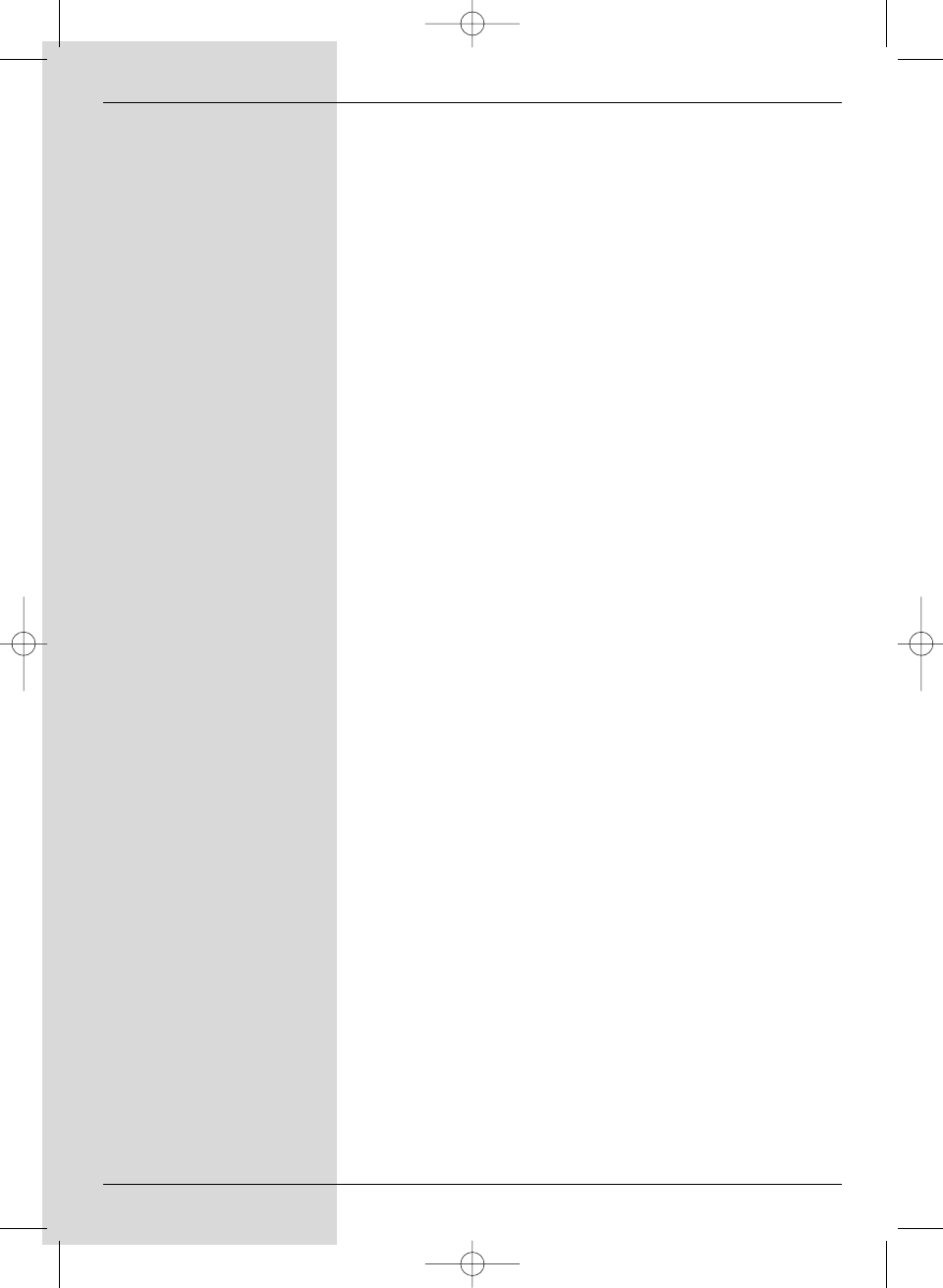
Satellite receiver:
The signals received and converted by the LNB cannot be
interpreted by the television set. The satellite receiver further
converts these signals in such a way that it feeds audio and
video signals (AV) to its output connections in a form that can
be used by the television set.
SCART:
Connector plug used for television sets, video recorders,
satellite receivers and other appliances in the field of
entertainment electronics to transmit Audio and visual signals
(AV).
Software update:
Digital television is a new medium. Apart from the improved
picture and sound quality, it also provides the facility for
interactive services. These services are constantly being
developed and improved by providers. To utilise these
services, it may become necessary from time to time to
update the operating software of the receiver.
Transponder:
This processes one or several programmes within the
satellite. That is, reception of data from the ground station,
amplification and broadcast of the signal back to earth.
Universal-LNB:
Term used to describe a triple-band LNB. Used to receive the
ranges FFS (10,70 - 11,70 GHz), BBS (11,70 - 12,50 GHz)
and FFS High Band (12,50 - 12,75 GHz). The entire range is
divided into two bands:
Low Band: 10,70 - 11,80 GHz; LOF 9750 MHz
High Band 11,70 - 12,75 GHz ; LOF 10600 MHz
Supply voltage:
LNBs receive their power supply via the coaxial cable. To this
end the receiver delivers a supply of 14 or 18 Volts
Intermediate frequency:
The frequency range broadcast by satellites cannot be
transmitted via a cable. The LNB therefore converts the
incoming signal to a signal in the intermediate frequency
range of 950 to 2050 MHz. This signal can be transmitted via
cable, and can be interpreted by the receiver.
1. IF = Intermediate frequency
42
bed_anl_DIGITY CI_Quark3_en.qxd 31.01.03 16:47 Seite 42


















